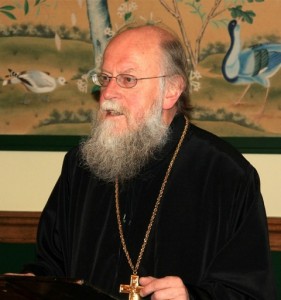A Russian Orthodox priest named Father Andrew Louth graciously agreed to let me conduct an interview with him. I really enjoy talking to people whose perspectives on life are different from mine. I believe that we can learn from each other.
Father Andrew is the main priest at a Russian Orthodox church in Durham, England. Earlier in his career, he also taught early Christian theology at Oxford University. I really enjoyed learning about Father Andrew’s life, interests, and spiritual views.
Here are some of the questions that I asked Father Andrew, and I later put his answers into an article for The Pneuma Review.
Rachel Mock: What influenced your decision to become an Orthodox priest?
Father Andrew: The parish in Durham needed a priest, and I was thought appropriate.
Rachel Mock: Do you believe that there are misconceptions about Orthodoxy that people of other Christian traditions have?
Father Andrew: Yes, lots, of course: mostly due to ignorance. Only with the emigration from Russia, Greece and other countries over the twentieth century, has Orthodoxy become at all well known in the West, and such knowledge is very patchy and often superficial.
Rachel Mock: You also mentioned on the website that “theology is not separated from prayer and spirituality: the God whom we seek to understand is the God to whom we pray.” Could you explain more about prayer and spirituality within Eastern Orthodoxy?
Father Andrew: Both private prayer and liturgical prayer are important within Eastern Orthodoxy, and I would argue that they form the touchstone of theology: see my book, Introducing Eastern Orthodox Theology (2013).
Rachel Mock: How have your religious beliefs influenced your life?
Father Andrew: I hope extensively.
Rachel Mock: How is Orthodox theology different from that of other Christian traditions?
Father Andrew: First of all, it is important to realize that the different Christian traditions share far more in common than what separates them. In my view the explicit differences (the procession of the Holy Spirit, the use of leavened bread in the Eucharist, and other liturgical differences) have a largely cultural explanation. The major difference between Orthodoxy and Roman catholicism is the role of the papacy.
Rachel Mock: What can people of other Christian traditions learn from Orthodoxy?
Father Andrew: I would say that we all need to learn from each other, by listening and praying together.

Maurice
Rachel
Maurice
Rachel
Maurice